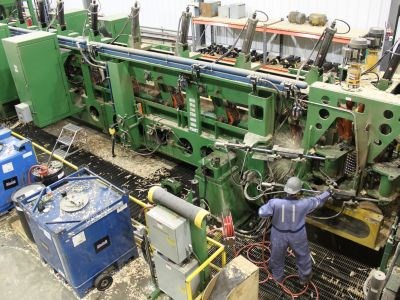As the deadline approaches to settle a new Softwood Lumber Agreement between Canada and the U.S., Northern Ontario stakeholders are weighing in on what could happen to the industry if a new agreement isn’t secured by the cutoff date.
On Oct. 12, 2015, the nine-year agreement — which outlined tariffs and guidelines for the lumber trade between the two countries — expired. Failing to negotiate a new arrangement, a one-year “standstill” period set in, allowing free trade while a solution could be found. But there’s been no sign that a new agreement is on the horizon.
In Canada, American producers allege the lumber industry is subsidized by the provincial and federal governments, while in the U.S., prices are set by the market, a situation the U.S. contends is unfair. It believes Canadian lumber should be subject to a tariff to offset the subsidy.
Christine Leduc, director of public affairs for EACOM Timber Corporation, said the company is disappointed a new agreement couldn’t be ratified by June, despite assurances by both Prime Minister Justin Trudeau and President Barack Obama in March that it was a priority.
For EACOM, whose Northern Ontario operations include mills in Timmins, Elk Lake, Gogama, Ear Falls and Nairn Centre, a deal must be “commercially reasonable,” and maintain Ontario’s share of the U.S. market, Leduc noted. Based on the 2006 agreement, that equates to 3.34 per cent.
“For Ontario, trade with the United States is significant for the forestry industry,” Leduc said. “Up to 95 per cent of Ontario’s forestry products exports go to the U.S…. If you're a producer in Ontario, you're not shipping west; you're not shipping east; you're selling domestically or to the U.S.”
In the past, the U.S. has introduced anti-dumping and countervailing duty investigations against Canadian softwood lumber, but Leduc noted that Canada successfully defended itself against those actions, and she expects it would do so again.
Yet fighting those actions in court could take years and cost tens of millions of dollars to resolve, she noted. In the meantime, the U.S. Lumber Coalition’s action would be swift and the impact to Canadian producers immediate.
“Certainly, come the deadline, if there’s no agreement, U.S. Lumber Coalition will petition the Department of Commerce to start these actions, and so potentially we could see duties implemented in the first half of 2017, but this is really uncertain,” Leduc said. “That’s why it’s such a big issue for us.”
The risk of a stalemate was one Frank Dottori was willing to take when he purchased the stalled Hornepayne lumber mill in August. Formerly run by the Olav Haavaldsrud Timber Company, the mill closed in November, 2015, leaving 146 workers unemployed.
Dottori, CEO of White River Forest Products, said the new company will aim to ship “at least 50 per cent” of its product to the U.S., and acknowledges the mill will have to be competitive in order to survive.
“If not, B.C. will flood the entire Ontario market with wood and shut us down. That’s one reason why want to be in a competitive position,” Dottori said. “Second item, is if the agreement is very onerous then it may prevent the startup of the mill and I’m going to look very foolish. But I’m an optimist.”
Despite the downturn, Northern Ontario lumber mills have continued to invest in their operations, and Dottori is disheartened at the lack of government support for the industry.
“We need access to the U.S. market, and we’re a bit disappointed that we don’t see a more aggressive position by the Canadian and Ontario governments to ensure Ontario gets its fair share of whatever happens,” Dottori said. “I’m convinced there’s going to be some kind of a quota arrangement.”




